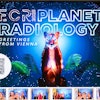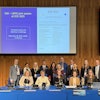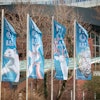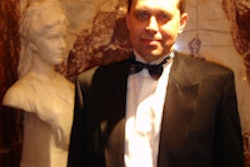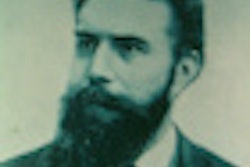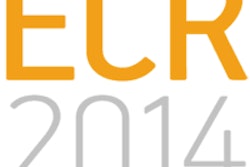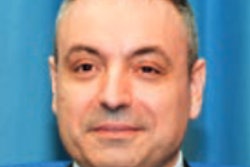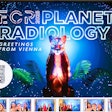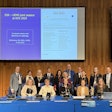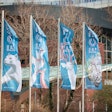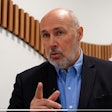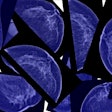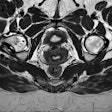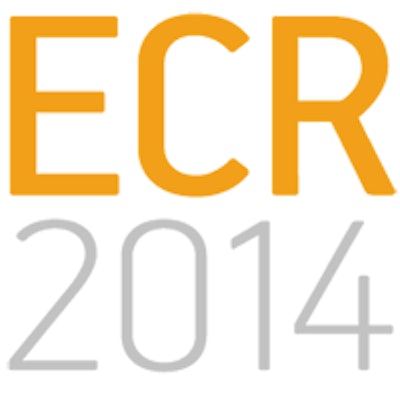
VIENNA - Serbian radiologists have warmly welcomed the chance for greater visibility at the ECR and in European radiology at large -- visibility which until recently has been lacking, despite the country's scientific contribution to the discipline.
Saturday's "ESR meets Serbia" session began with a bittersweet experience outside the auditorium as delegates were offered a choice of spicy dark chocolate or caramel milk chocolate wrapped in the red, white, and blue colors of the Serbian flag. A heady mix of "East meets West" was prevalent in the cultural interludes as well as the scientific lectures, some of which highlighted how latest know-how can sometimes be challenged by modern Serbia's specific socioeconomic context and recent geopolitical upheaval.
Yesterday's meeting was a lively and intriguing session that not only brought Serbian radiology into sharper focus but also emphasized its long-established status as a fully fledged member of Europe's radiological community.
European Society of Radiology (ESR) President Dr. Guy Frija opened the session by underlining that Serbia had long ago created a pivotal place for itself in European radiology.
"We don't have to welcome Serbia. Serbia is already home," he told delegates, pointing to Serbia's long-standing membership in the ESR and its swift adoption of the society's charter on harmonization.
In addition, Frija wished to underline that there was no such thing as small or large countries when it came to input, because input was not related to country size.
Echoing to some extent these comments, Dr. Milos Lučić, the president of the Radiological Society of Serbia, expressed his happiness and gratitude for the chance to showcase Serbian talent.
"It is a real honor and pleasure to receive the invitation from ESR. For Serbian radiology, it is an extraordinary opportunity to present our accomplishments and our potential," said Lučić, chair of the diagnostic imaging center at the Institute of Oncology of Vojvodina, Sremska Kamenica, and former chairman of the ESR's Radiology Trainees Forum. "We Serbian radiologists feel very welcome at the ECR and happy to show what we do, what we can do, and what we will do in collaboration with our European colleagues."
The invitation to the ESR meets session was a significant step forward, and hopes remain high that the country will eventually become a full member of the European Union, he told ECR Today.
"It means a lot to our country's 550 radiologists who bring modern imaging to the country's population and without whom clinical work would not be possible," Lučić said.
Demonstrating that the conflict in the former Yugoslavia is long since behind them, cooperation between the radiological communities across Serbia, Croatia, Slovenia, Bosnia-Herzegovina, Macedonia, and Montenegro is thriving, he added. Last year the first regional MRI School took place in Bosnia-Herzegovina for young trainees across the region. Lučić hopes this project, scheduled to be an annual event conducted in a common language, will be included in the European School of Radiology. This year the MRI School will be held in Lučić own center.
Serbian prowess was prevalent in the society's logo, which this year includes Serbian-born Nikola Tesla and the slogan "The Power of MRI."
"We are confident that Serbia is in no way less competent than the other European countries in diagnostic imaging expertise. The problem of course is the economic crisis and not having funds to acquire equipment," he said. "With improvement in economic conditions generally and in our country, we will gain the means to perform all of the novel diagnostic imaging techniques in practice -- as we are already capable of doing."
From the first radiological meeting in the former Yugoslavia held in 1930, the region's radiological community has much evolved, yielding along the way famous Serbian experts such as Dr. Stojan Dedic (1889-1959), the first Roentgenology professor at Belgrade University. Today's Radiological Society of Serbia was created in 1994, with the addition of subspecialty societies of neuroradiology in 1996, digestive radiology in 2007, and interventional radiology in 2012.
The 39th meeting of the European Society of Neuroradiology (ESNR) will take place in Belgrade from 15 to 18 September 2016.
Originally published in ECR Today on 9 March 2014.
Copyright © 2014 European Society of Radiology

